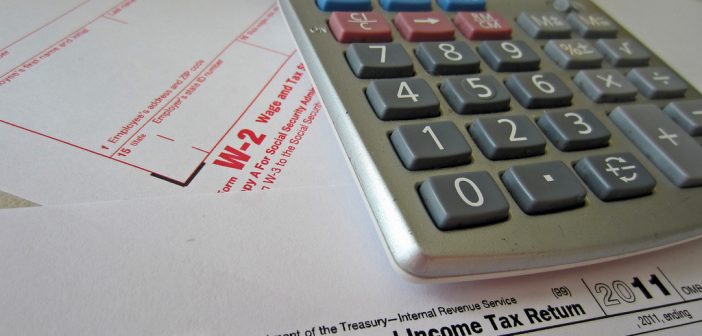If you are like most taxpayers, you may pay a small fortune to the IRS each year through income taxes. A heavy tax burden can be difficult for individuals and families to bear, and you understandably want to decrease this burden as much as possible so that you keep more of your hard-earned money in your own bank account. The good news is that there are numerous tax deductions available that can help you to save money on taxes. You may already be using common tax deductions, but learning more about hidden or commonly overlooked deductions can help you to save even more money on your taxes in the years to come.

Medical expenses can cost a fortune, and there is a good chance that you and your family may have generated enough expenses to qualify for the deduction. First, tally up the total of all medical expenses and dental expenses that you paid over the last year, including prescription drugs, therapy and more. Then, calculate 10 percent of your total adjusted gross income. If your total medical expenses are greater than 10 percent of your adjusted gross income, you may qualify for a considerable deduction. You will need to file a Schedule A on your tax return to determine your deduction. Because you can never tell at the beginning of a tax year what medical expenses you may have, it is wise to keep all of your medical receipts in an envelope or shoe box each year.
Moving Expenses
Some moving expenses are tax deductible, but not all of them are. If you relocated to a new city or state to take advantage of a new job opportunity and if you work full-time in the position, you may qualify for this deduction. Your moving expenses, including lodging en route to the new home, may be deducted. This can save you a small fortune in taxes if you qualify for this deduction
Charitable Expenses
Many people actively participate in charitable organizations. You may think that donating money and possessions is the only way to qualify for this tax deduction, but this is not accurate. For example, if you drive your personal vehicle for charitable activities, your mileage may qualify as a deduction. Lodging, meals and other expenses that you incurred while participating in a charitable activity for a qualifying organization may also qualify. Be sure to track mileage and expenses so that you can use this tax deduction.
Tax Prep Fees
If you file a Schedule A on your tax return, your tax preparation fees may also be deductible. This includes the nominal amount you may pay to self-file. It may also include the more substantial fee you may pay to use professional accounting services.
Business Mileage and Other Expenses
You may think that the only business tax deductions available are for self-employed workers, but this is not the case. Most business expenses that you pay out of your own pocket, regardless of if you are self-employed or not, may be deductible. For example, if you use your personal vehicle to run a business errand for your boss, the mileage may be a deduction. Other deductible business expenses include uniforms, professional dues, job hunting expenses, tools used in your trade and more. However, this deduction only applies to expenses that exceed two percent of your income. You may even be able to deduct the cost of your passport if you had to purchase it yourself for a business trip. Keep track of all business expenses each year to determine if you qualify.
Second Home Expenses
Many people have a second home, but they do not take advantage of this deduction. This may be because they do not know about the deduction or because they do not realize that the home qualifies for the deduction. There are second home tests in place, and these include if the dwelling is able to be inhabited year-round. It must also have a sleeping area, a kitchen area and a head or toilet. With this in mind, you can see that some boats and RVs may even qualify as second homes. You may be able to deduct the interest on your second home. However, keep in mind that you can only deduct interest on a first and second home and not on a third home.
Education Expenses
There are various ways for you to avoid paying unnecessary taxes through your education expenses. You may qualify for the Lifetime Education credit, the American Opportunity Credit or a general deduction on education expenses. This may include your tuition as well as books and other related fees. You can learn more about the qualifications for these deductions and credits to determine if you qualify.
State Sales Tax
Forty-three of the 50 states have a sales tax, and you may pay a small fortune to your local government through this tax. You generally can choose between deducting your state and local income tax or your state and local sales tax. For those in states like Texas, which do not have an income tax, this is a no-brainer. Deducting the sales tax is the best option. However, if you have a state income tax and a state sales tax, you must determine which is the better option. If you have made large purchases, such as a new car, and if your income is lower, deducting the sales tax is a smart idea.
Paying your federal income tax bill can be a tremendous burden. Some pay a lump sum at the end of the tax year, such as those who are self-employed. Others pay their taxes regularly through periodic withholdings from each paycheck. By taking advantage of as many deductions as possible, you can reduce your tax burden. Some people will even strategically plan deductions, such as by buying a second home or other tax-beneficial investments, so that they can avoid having to pay so much in taxes. Take time to examine these deductions to determine how they apply to you.







